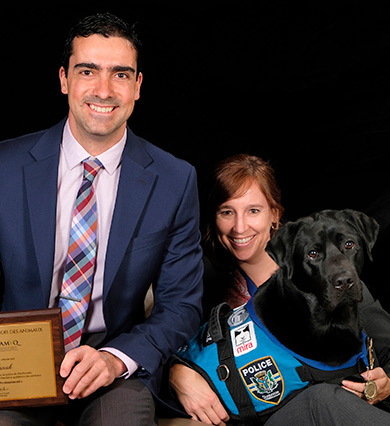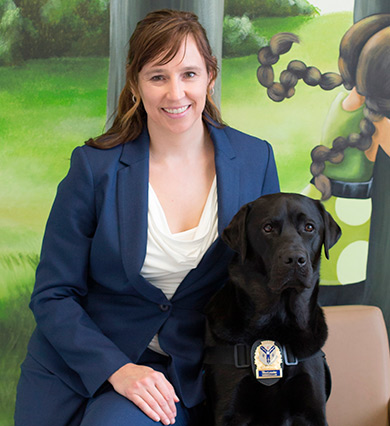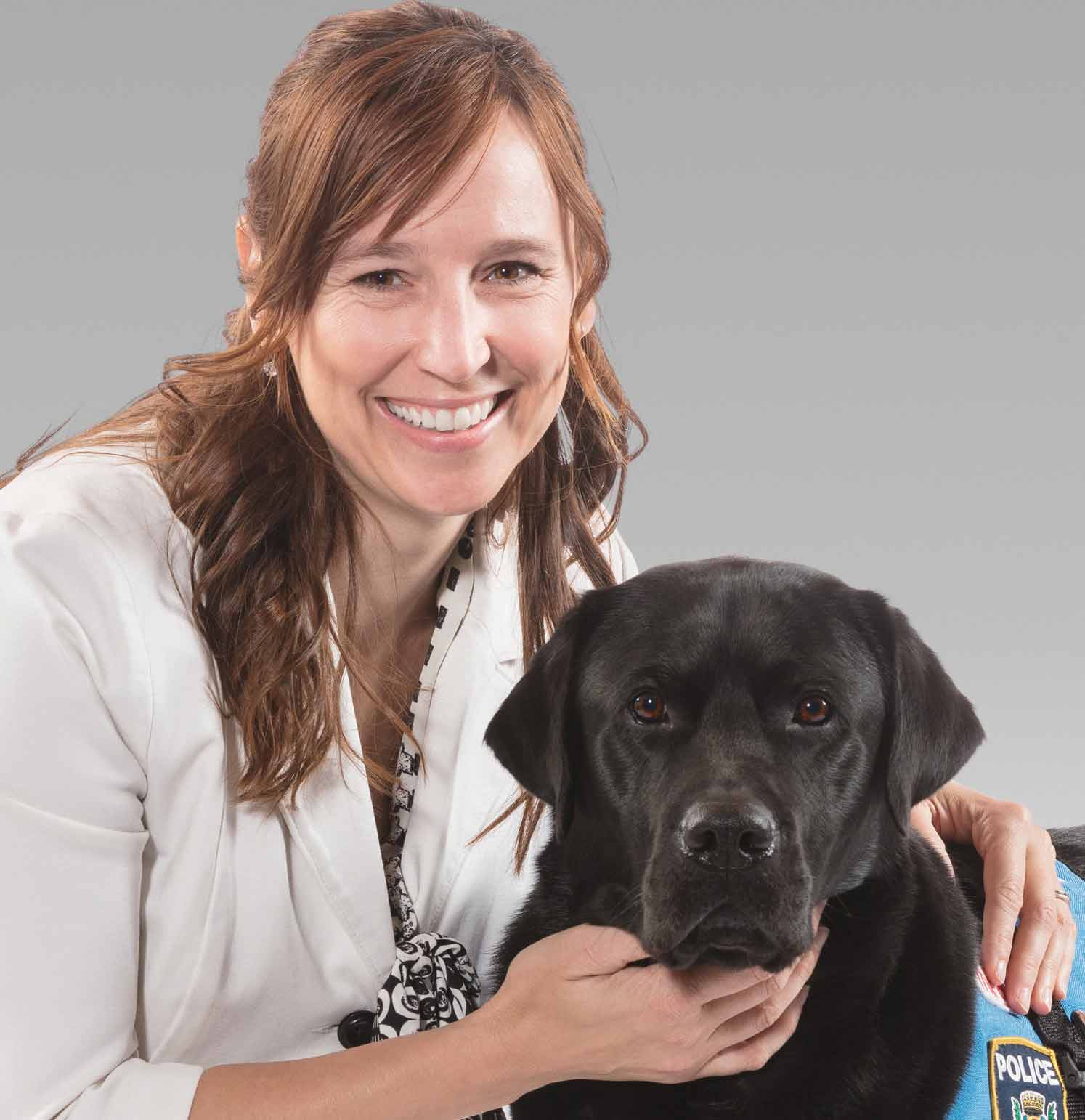
Kanak and the future for emotional support dogs
Published October 30, 2018.

Mondou Academy
Mondou employee training specialist
Kanak is an exceptional dog. In fact, he has inspired other professionals to use support dogs. Is this a first step toward the future?

Do you think your experience with Kanak will be repeated elsewhere?
Every day, I get calls from people asking for information about the project. Other professionals outside the justice system also want to use dogs with their clients.
The fact that several police departments, Youth Protection (DPJ) and the courts agree to have these dogs present and are aware of their importance for victims lends a great deal of credibility to the benefit of these animals. I’m convinced that there will be a growing demand for this type of dog in all areas where people need to be comforted. Consider, for example, youth centres, schools, crime victims’ assistance centres, pediatric clinics, palliative care centres, funeral homes, detention centres, and psychologists’ and psychiatrists’ offices.
Does this seem like a bizarre idea to you? Well, it’s not bizarre at all. It’s already happening in the U.S.

What do you think about the future for emotional support dogs?
Support dogs were first introduced in the U.S. in 2003 thanks to the Courthouse Dogs Foundation. There are currently 201 of these dogs in service. North of the border, the first dogs were introduced in Western Canada in 2010. Today, there are 41 emotional support dogs working in Canada.
Kanak became the first support dog in Quebec in 2016, but several others have since joined the ranks. The Sûreté du Québec has two, Kevlar and Sundae. The Terrebonne police department uses the services of a dog named Matta. The DPJ office in Longueuil has Nana; the one in Abitibi has Chevelle; the one in Montreal’s Centre-Sud area has Soga; and the one in Gatineau has Brao.
A child psychiatrist in Richelieu works with Zaïa, and the Maison du Père in Montreal uses the services of a dog named Argon. Kanak’s brother, Brao, aka Ti-gars, works in a school for autistic children. All these dogs hail from the Mira Foundation. Kanak’s story was shared overseas through his Facebook page and, as a result, Belgium’s North Brussels police department came to get Switch, a Mira dog. The French police, inspired by Kanak’s work, recently adopted a support dog trained by Handi’chiens in France.

How has Kanak changed your life?
I discovered my true passion. Now, I’m always smiling. I smile at the thought of helping victims and living more purposefully. I’m now able to do good with the help of a dog, and bring a touch of compassion and tenderness to my police work.
Our relationship is special, since I’m with him more often than I’m with my husband or my kids. We’ve developed a really strong bond. He’s calm, low energy and a real food lover, and adores being cuddled. I guess we’re cut from the same cloth!
We make a really good team. I can’t imagine what will happen when he retires or when we have to say goodbye for good.
I respect and appreciate everything that Kanak brings to his work with crime victims, as well as the wonderful adventures that he allows me to experience as part of this project.
What does Kanak do when he’s not working?
In short, he sleeps. He’s calm and low energy. You might even say he’s rather lazy. He spends most of the day on his favourite sofa. Otherwise, he plays with our other dog, Charlie, a much more active golden retriever, and likes to go for walks with him. We can’t ask him to go running with us; he doesn’t have the energy. After 300 metres, he can’t run any more, and just walks. He loves to be cuddled by my children and to be a guinea pig for our future veterinarian, who practises bandaging techniques on him. Meals are the highlight of his day. He’s not a typical Labrador; duck hunting is just not for him.
What are your hopes for the future?
I hope that emotional support dogs continue to gain popularity and are introduced in areas where their presence will be useful.
Interview with Mélanie Bédard,
detective from du Sherbrooke Police.